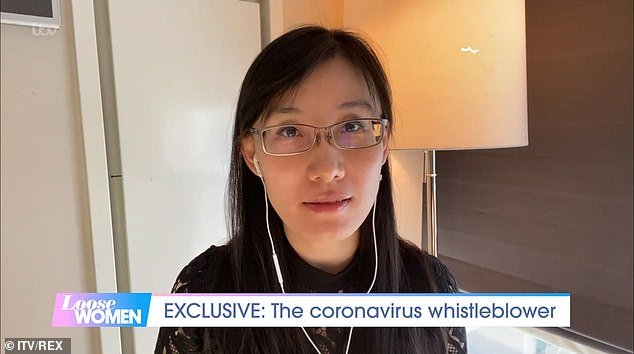Twitter has suspended the account of a Chinese virologist after she posted an independent study claiming that COVID-19 was developed in a lab. Dr. Li-Meng Yan, a former researcher at the Hong Kong School of Public Health, says that she was forced to flee China for attempting to publish claims the virus originated from a Wuhan lab.
So far, Twitter declined to comment on her profile’s removal. The account was taken down just after Li-Meng Yan posted her research on Twitter.
The paper, which was co-authored with two other researchers from China, claims that “SARS-CoV-2 shows biological characteristics that are inconsistent with a naturally occurring, zoonotic virus.”
This particular theory has surfaced numerous times since the pandemic began, in fact, other scientists have published papers which also suggested that the virus was man-made. However, these studies were either retracted shortly after they were published, or they taken down the same manner.

Many free speech activists were concerned that scientific discourse was being stifled. While her theory was extremely controversial, advocates say that the true spirit of scientific research is to fully explore every possibility and leave no stone unturned in the search for evidence. Advocates of the lab-leak theory believe that they are being pushed out of the scientific discussion prematurely. They have also pointed out that lab leaks are not unprecedented, and have occurred on numerous different occasions. Mistakes at bio labs are more common than most people would expect.
In October of 2014, the United States government placed a moratorium on biological research that engineered viruses to make them more dangerous. At the time, all federal funding was halted on these projects in the United States, but just a few years later, in 2017, the laws were changed to allow this type of research to take place if it was approved by a scientific panel. These panels are tasked with determining whether or not the benefits of such research outweighed the risks.
In scientific circles where this type of research is done, tweaking a virus to make it more deadly or transmissible is known as “gain of function.” Experts are divided over whether this type of research is safe, and if it is even necessary.
After the moratorium on “gain of function” research was lifted, Marc Lipsitch, an epidemiologist who directs the Center for Communicable Disease Dynamics at the Harvard School of Public Health, told the New York Times that these types of experiments “have given us some modest scientific knowledge and done almost nothing to improve our preparedness for pandemics, and yet risked creating an accidental pandemic.”
However, people on the other side of the debate have pointed out that this researcher may have some ulterior motives. and possible connections to the Trump administration. The study was published under the observation of the Rule of Law Society & Rule of Law Foundation in New York, an organization founded by Chinese magnate Guo Wengui, who has been in exile in the US for several years after being accused of crimes including corruption and sexual abuse in China. The Society’s stated mission is to “expose corruption, obstruction, illegality, brutality, false imprisonment, excessive sentencing, harassment, and inhumanity pervasive in the political, legal, business and financial systems of China.”
It is important to note that former Trump staffer Steve Bannon is heavily involved in the Rule of Law Society.
Good post brother